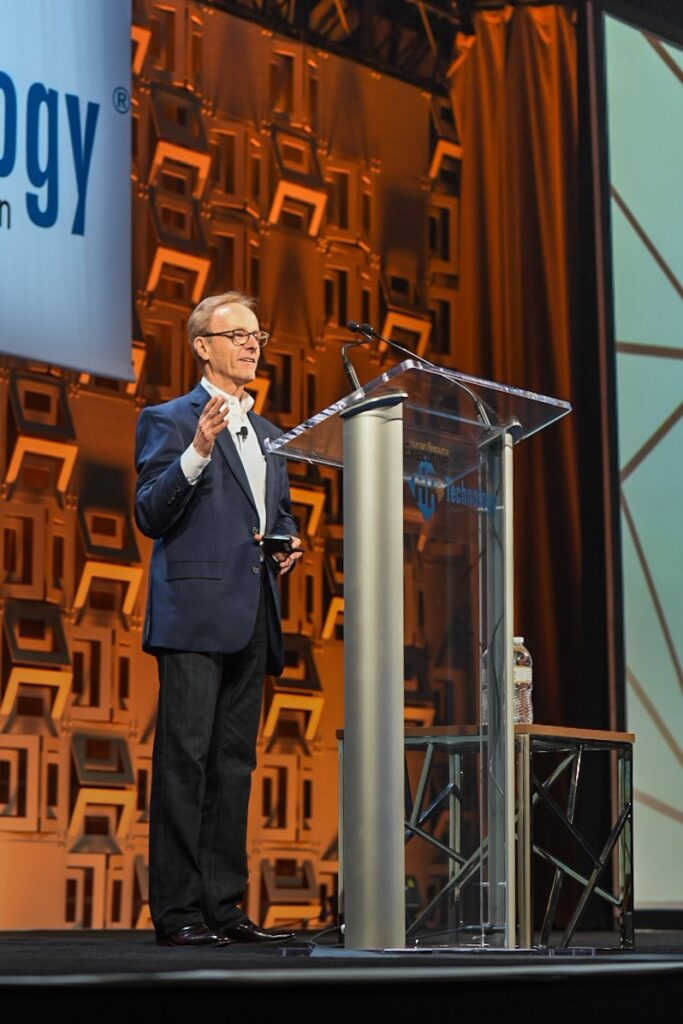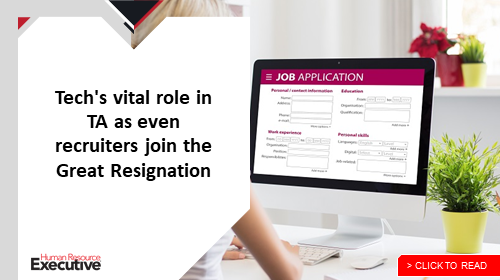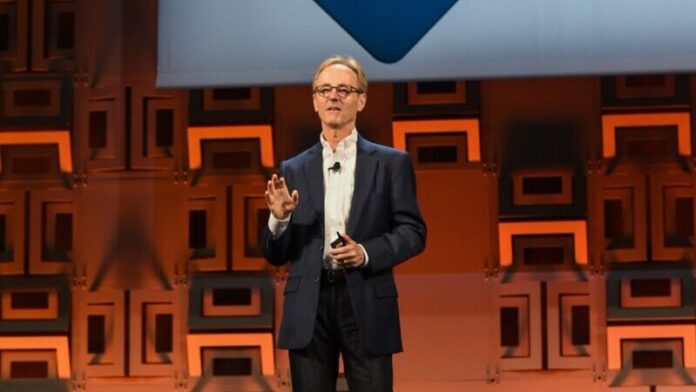In a sprawling overview of the current HR technology market, analyst and HRE columnist Josh Bersin told a packed audience at the HR Technology Conference on Wednesday that the coming year should see both consolidations in the market and continued growth, even amid concerns of a recession.
In his keynote address entitled, “The Disruption Never Stops: What’s New and What’s Ahead in the HR Tech Market,” Bersin highlighted a number of trends, including the maturing skills market, the need for talent intelligence and the power of employee listening.
Setting the stage, Bersin said that HR leaders have their hands full, particularly given what he called “incredible” inflation and volatility in the stock and crypto markets. On top of that, 81% of workers say they are burnt out. Recent job figures tell the tale, with 4.2 million people having left their jobs and one-third of the workforce that has moved on over the past few years. “These issues will continue whether we have a recession or not,” he said.

Bersin emphasized that the best new HR tools are not designed to help HR professionals confront these issues; rather, they are primarily geared toward employees. “In my research of big HR systems, the successful implementations were not tech projects but business transformation projects aimed at employees,” he said.
Where is the market headed?
Upskilling and reskilling have been major focuses for many employees in today’s market, yet Bersin admitted that he’s been frustrated by the claims of skills vendors. “I fear you have been oversold on the promise of skills. This is a very, very complex problem,” he said.
“Today’s skills problem is important and complex, and it affects the job architecture inside a firm with new job titles that require the same skills,” he said. “We now have eight different job titles that all resemble the same role and skill requirement.”
The rise of capability academies—the learning method of allowing employees inside an organization to partner with or mentor one another—has picked up speed in the past year. “These academies bring together people in a company and let them learn from each other,” he said.
 Technology is going to make learning increasingly innovative, he said; for instance, corporate training is an area where the metaverse, virtual and augmented reality will abound.
Technology is going to make learning increasingly innovative, he said; for instance, corporate training is an area where the metaverse, virtual and augmented reality will abound.
In addition to tech-fueled learning, Bersin also highlighted the need for robust employee listening, a feature that now resides in many HCM platforms. “You cannot learn about your company unless you listen to employees. Employee listening is a massive space and is expanding,” he said and added that passive listening—the ability to find data points about employee behaviors, productivity and actions—is taking off, as well.
Smart use of talent data can be a differentiator in today’s job climate. For instance, workspace analytics—who is using the office, who isn’t—will “be a big part of HR next year,” he predicted.
Despite the challenges of the Great Resignation, the back-to-the-office debate and new concepts like quiet quitting, Bersin said he believes that the role of HR—and its capacity to maximize the use of technology—has never been more vital.
“The most important part of all of this is what you do,” he said. “There is no way to deal with this complexity unless [HR leaders] take it seriously.”



